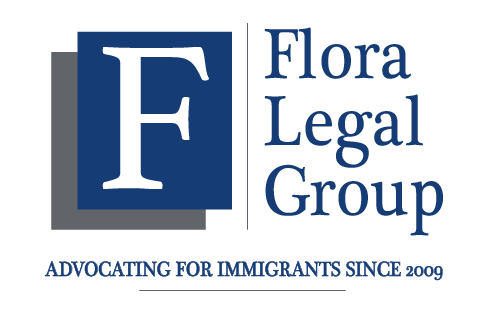For many people around the world, the United States represents safety and freedom. If you are afraid to return to your home country because of persecution, you may be eligible to apply for asylum in the United States. At Flora Legal Group, we help individuals and families navigate this complex process with care and experience. In this post, we’ll explain the basics of asylum, the five protected grounds for asylum, the one-year filing deadline, and other key points to keep in mind.
What Is Asylum?
Asylum is a form of protection offered by the U.S. government to individuals who are already in the United States or at a U.S. border and who cannot return to their home country due to a well-founded fear of persecution. Persecution must be based on one or more of five protected grounds recognized under U.S. and international law.
If granted asylum, a person may remain in the U.S. legally, apply for a work permit, and eventually seek lawful permanent residence, also known as a green card, and even citizenship.
The Five Grounds for Asylum
To qualify for asylum, an applicant must show that they were persecuted in the past or have a well-founded fear of persecution in the future. This persecution must be due to one of the following five protected grounds:
- Race. This includes persecution because of the applicant’s skin color, ethnic background, or other racial identity. For example, someone targeted because of their racial group in a conflict zone may qualify for asylum on this basis.
- Religion. Religious persecution can include being punished for practicing your religion, being forced to convert, or being targeted for belonging to a minority religious group.
- Nationality. This refers not only to your citizenship but also to your ethnic or linguistic group. For instance, members of minority national groups facing discrimination or violence may seek asylum under this ground.
- Membership in a Particular Social Group (PSG). This is one of the most complex and commonly used grounds. A “particular social group” could include survivors of domestic violence, LGBTQ+ individuals, or people who are targeted because of a shared trait or experience that cannot—or should not—be changed.
- Political Opinion. If you have been persecuted or fear persecution because of your political beliefs—whether expressed through speech, protest, or membership in a political party—you may qualify under this ground.
Each asylum case is unique, and it’s often necessary to clearly link the harm you suffered or fear to one of these specific grounds. This is where having a qualified immigration attorney is especially important.
The One-Year Filing Deadline
One of the most important—and often misunderstood—rules in the asylum process is the one-year filing deadline. In general, you must apply for asylum within one year of your last arrival in the United States.
There are limited exceptions to this rule. You may still qualify for asylum if:
- You can show changed circumstances that affect your eligibility (such as new threats in your home country or changes in your personal situation).
- You can show extraordinary circumstances that prevented you from filing on time (such as serious illness, ineffective assistance of counsel, or legal disability).
Even with exceptions, it is critical to act as soon as possible. Missing the deadline without a valid excuse can result in your case being denied, no matter how strong your fear of persecution might be.
Other Important Considerations
- Affirmative vs. Defensive Asylum. You can start an affirmative asylum process by submitting an application to U.S. Citizenship and Immigration Services (USCIS) if you are not in removal proceedings. If you are already facing removal, you must request defensive asylum in immigration court.
- Work Authorization. You can apply for a work permit 150 days after submitting a complete asylum application (Form I-589), and you may be approved after 180 days.
- No Filing Fee. There is no government filing fee for applying for asylum, which makes it more accessible to many people in difficult financial situations.
- Family Members. You may include your spouse and unmarried children under 21 in your application if they are in the United States.
All in all, the asylum process is complex, and small mistakes can lead to delays or denials. At Flora Legal Group, we understand how high the stakes are for you and your loved ones. Our team provides compassionate and experienced legal support to asylum seekers at every stage of the process—from preparing your application to representing you in court. Whether you’re facing a tight deadline, unsure how to tell your story, or simply need someone to guide you through the system, we are here to help.
📍Indianapolis, IN: (317) 487-4652
📍Louisville, KY: (502) 493-6009
